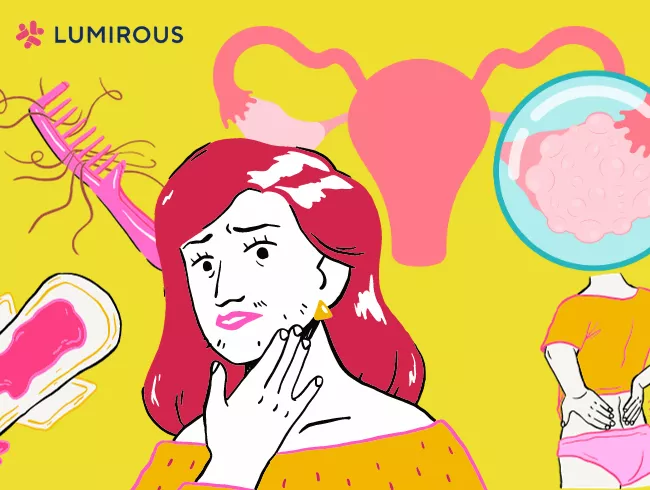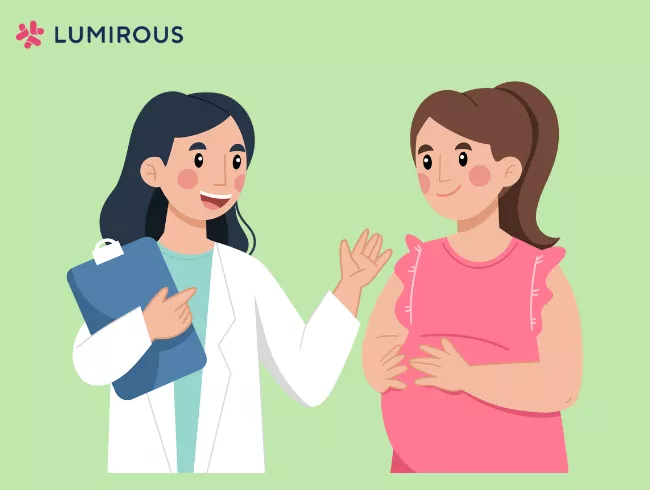Table of Contents
What is PCOS?

Polycystic ovary syndrome (PCOS) is a condition that affects women, whereby a women’s body produces a greater amount of androgen hormones, or male hormones, than what is considered normal.
As a result of this hormonal imbalance, women may experience symptoms of PCOS such as irregular periods, hirsutism (excessive hair growth), acne, and unexplained weight gain. PCOS is also a common cause of infertility, so some women with this condition face difficulty getting pregnant.
Understandably, if you have PCOS, you may have concerns about how it affects your fertility. It is perfectly normal to have your share of doubts and worries. Through this article, we hope to clarify some of the lingering questions you may have as well as bust some common misconceptions about PCOS and fertility.
How Common is PCOS?
PCOS is considered a fairly prevalent condition. Based on a 2018 study conducted amongst Malaysian women, researchers found that the prevalence rate of PCOS was 12.6%. [2]
In other words, around 1 in 10 women in Malaysia have this condition.
How does PCOS Affect Fertility?
PCOS is one of the most common causes of anovulatory infertility, which is infertility due to the absence of ovulation (release of an egg from the ovaries) in a menstrual cycle. In PCOS, there are excessive androgen hormones produced and a lack of estrogen or female hormones. Because of this hormonal imbalance, the release or development of a matured egg is hindered. Without the release of a matured egg, both ovulation and pregnancy cannot occur. [3]
In some instances where ovulation does happen, hormonal imbalances may affect the thickness of the uterine lining, and hence, hamper the implantation of a fertilised egg. Additionally, women with PCOS may also experience irregular menstrual cycles, making it more challenging for them to predict their fertile period and get pregnant.
In short, an interplay of all these factors may lead to infertility in PCOS.
Can I Get Pregnant with PCOS?

One of the most popular misconceptions is this: Women with PCOS cannot become pregnant. However, this statement does not depict the whole truth. In contrast, there are a host of management and treatment options that may increase the chances of a successful pregnancy, even if you have PCOS.
PCOS is one of the most prevalent causes of infertility, but it is treatable. Certain medications prescribed by a fertility specialist may help improve your PCOS symptoms, encourage ovulation, and boost your chances of getting pregnant. In addition to that, natural lifestyle modifications such as adopting a healthier diet and maintaining a healthy weight may also improve your fertility. [4]
Admittedly, PCOS makes it harder to become pregnant. And even though success is not guaranteed with any of these methods, talking to a fertility specialist, fertility coach, or trusted healthcare professional ensures that you get the best advice and guidance.
What Are The Risks of Getting Pregnant if I Have PCOS?
Women with PCOS may experience adverse birth and pregnancy outcomes. For instance, there is a more significant risk of gestational diabetes mellitus (diabetes during pregnancy), miscarriages, pre-term delivery, and hypertensive disorders linked to pregnancy. [5]
Understandably, you may feel anxious, worried, and concerned about your health as well as the health of your baby. Consulting your doctor or fertility specialist may serve to empower you regarding this as well as open up numerous opportunities for you to gather advice about how you can best prepare for your pregnancy.
For example, your doctor may recommend losing weight beforehand if your BMI (body mass index) falls outside the recommended range. Additionally, managing and controlling your blood sugar levels prior to getting pregnant may also improve outcomes and decrease the risk of undesirable complications during pregnancy. [6]
Final Takeaway
PCOS can affect your fertility and make it more challenging to get pregnant. However, pregnancy can still happen with PCOS. While the struggle with infertility is linked to heavy stigma, you don’t have to walk this journey alone.
When you feel ready, you may wish to find a safe space where you can share your thoughts, concerns, and struggles, as well as seek professional advice from a trusted healthcare provider, fertility specialist, or fertility coach. Contact Us Now!
